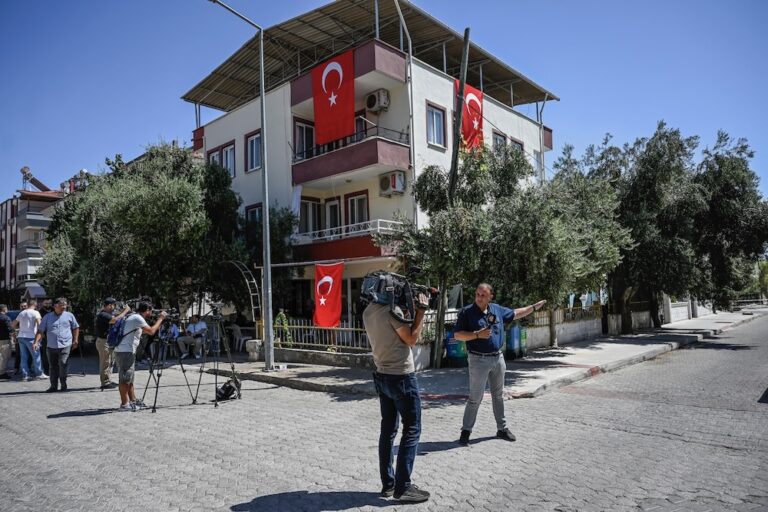(BIANET/IFEX) – After courts in Ankara and Sivas blocked access to the international video-sharing website YouTube in mid-January 2008, a court in Izmir blocked access to the site again on 30 January. The ban was subsequently lifted. On 17 January, the Ankara Twelfth Criminal Court of Peace ordered that access to YouTube be blocked. A […]
(BIANET/IFEX) – After courts in Ankara and Sivas blocked access to the international video-sharing website YouTube in mid-January 2008, a court in Izmir blocked access to the site again on 30 January. The ban was subsequently lifted.
On 17 January, the Ankara Twelfth Criminal Court of Peace ordered that access to YouTube be blocked. A 16 January order by the Sivas Second Criminal Court of Peace blocking access was implemented.
On 30 January, the Izmir Seventh Criminal Court of Peace also ordered that access to the site be blocked, citing a video containing content it deemed disrespectful of Turkey’s founder Ataturk, and “Turkishness”. The ban was later lifted.
The repeated blocking of access to the YouTube website is significant, because such blocking affects a much wider segment of the population than do bans on dissident media outlets’ publications or programming. The orders blocking access are also controversial because access to the entire website is halted due to the content of one single contribution. A reader of the Ntvmsnbc news website described the excessiveness of the orders blocking access by writing: “Now if someone came along and wrote Atatürk insulting letters, would you close down the post office?”


